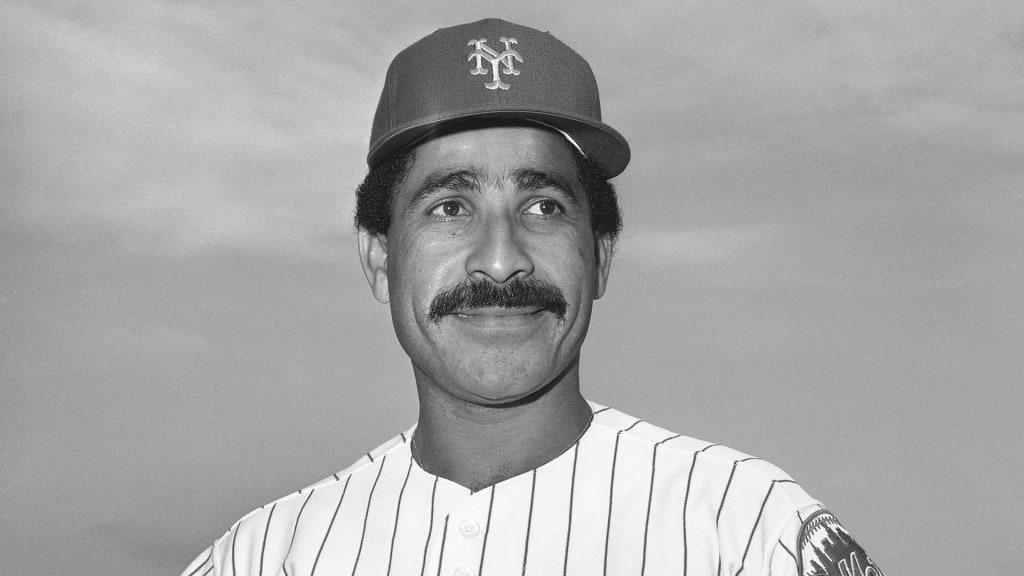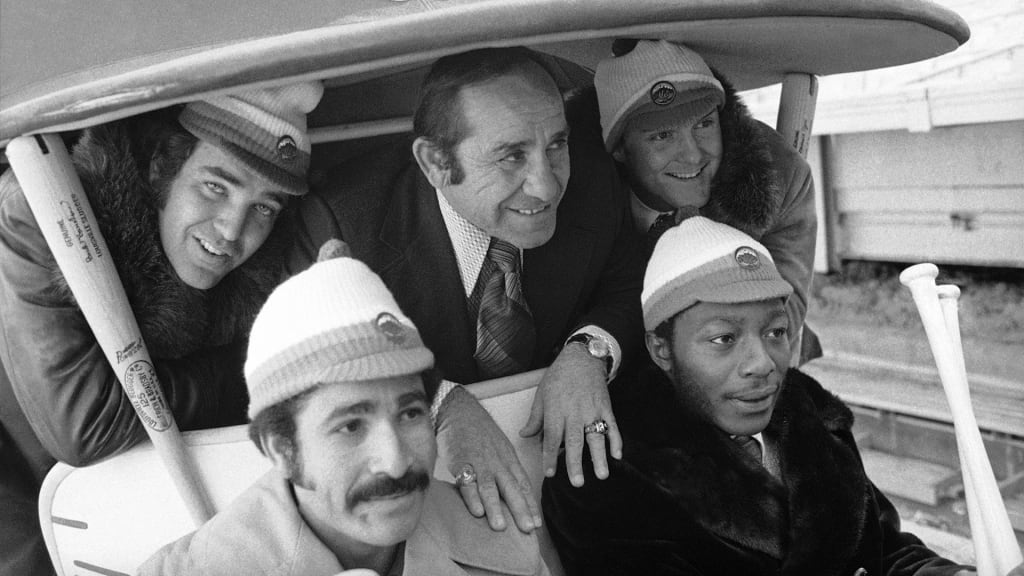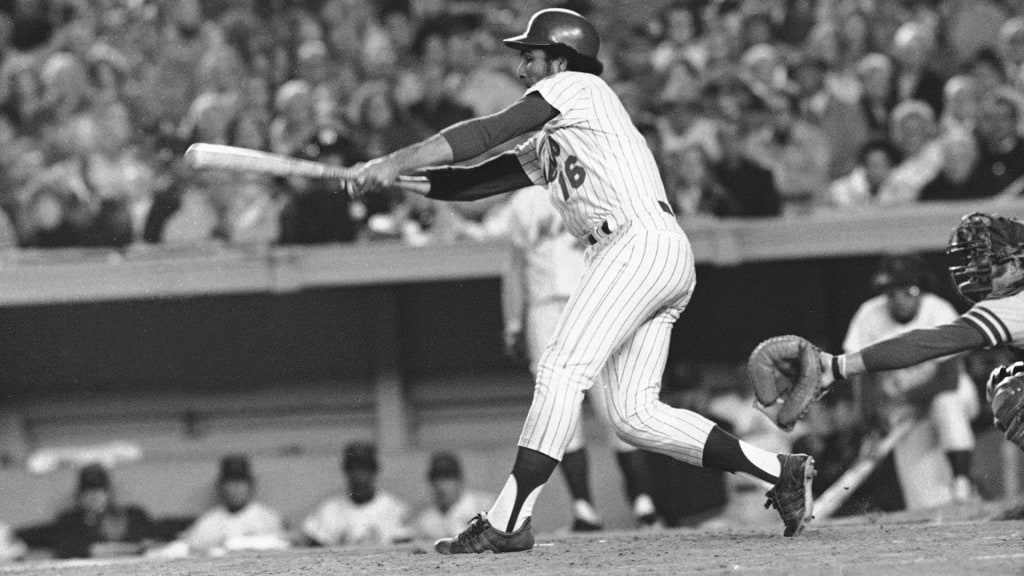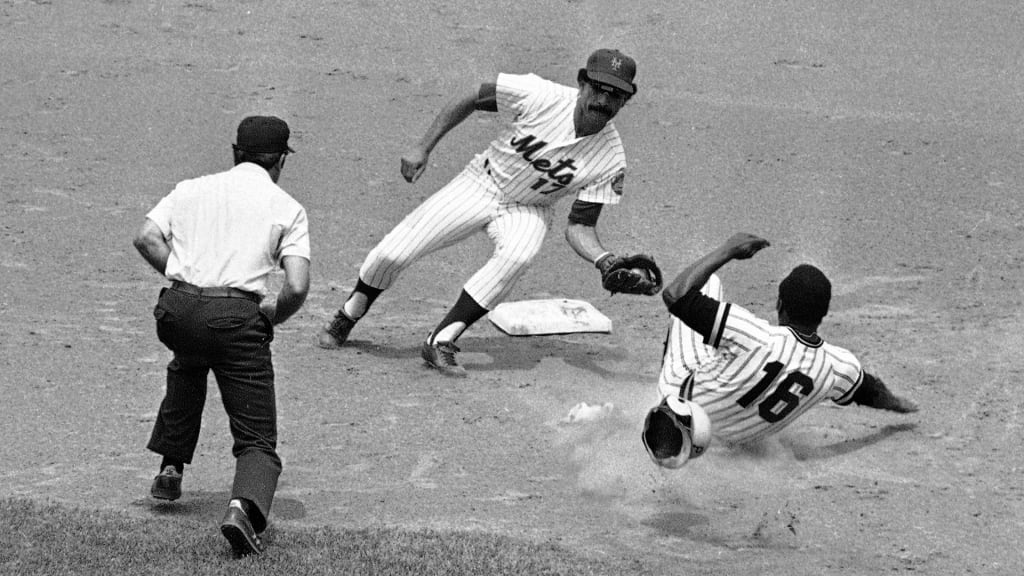
In honor of the 50th anniversary of the National League pennant-winning 1973 Mets, we're looking back at several of the notable players on that roster.
NEW YORK -- Yes, the 1973 Mets had a great pitching staff led by Tom Seaver, Jerry Koosman and Jon Matlack. On offense, New York’s MVP that year was a second baseman named Felix Millan, and what a year he had to help the club make it to the World Series against the Athletics.
The team was hit by the injury bug, as key players like Cleon Jones, Bud Harrelson and Jerry Grote missed significant time. Millan led the team in games played (153) and batting average (.290) and finished fifth in Wins Above Replacement (3.2, per Baseball Reference).
“I thank God I didn’t have injuries like my teammates. I loved to play. I wanted to be on the field every day,” Millan said via telephone. “God kept me healthy to play in New York.”

Millan accomplished so much with an unorthodox batting stance. He choked up on the bat and held his hands near the trademark. Let’s not forget that he was smooth at second base, turning double plays with Harrelson and making spectacular diving plays.
Millan said he never would have had a productive career if not for Hub Kittle, who managed Millan when both were with Class A Yakima in 1965. Millan was in a serious slump and his hands were placed near the knob of the bat. It was Kittle who made the suggestion to choke up, and the rest is history.
After he perfected his swing, Millan was in the big leagues by 1966 for the Braves. His first roommate was Hank Aaron, who went to Braves traveling secretary Donald Davidson and insisted that Millan stay with Hammerin’ Hank at the hotels. All Aaron did was show Millan the ropes on and off the field, and it paid off for Millan during his 12 years in the big leagues.
“He took me under his wing,” Millan recalled. “Everything he did, he did it to help me.”

Millan had five productive years in New York from 1973-77. He only hit eight home runs, but he batted .278 with 182 RBIs and struck out 92 times in 2,954 plate appearances. Millan often hit near the top of the order while playing for the Mets. All he wanted to do was get hits and advance the runners, which he did successfully.
There was a reason Millan was productive for the Mets. When the Braves traded him and left-hander George Stone to New York for right-handers Gary Gentry and Danny Frisella on Nov. 2, 1972, Millan celebrated and felt he was going home because there were a lot of Puerto Ricans living in New York.
“I was happy. I play baseball for my people,” Millan said. “ [Being Puerto Rican] means a lot.”
Millan’s closest friend on the Mets was first baseman John Milner, who would often tell Millan where to go eat.
“He taught me a lot in New York because I didn’t know too much about the place,” Millan recalled. “He would tell me what to do, just sharing things with me.”

Millan’s career in New York came to an abrupt end during the second game of a doubleheader against the Pirates at Three Rivers Stadium on Aug. 12, 1977.
Millan entered the game in the bottom of the sixth inning on a double switch. The Pirates had runners on first and second, when Mario Mendoza hit a ground ball to shortstop Doug Flynn, who threw the ball to Millan for the second out of the inning. Millan didn’t get a chance to throw to first because Pirates catcher Ed Ott slid hard into second base, knocking Millan to the ground.
In turn, according to Jane Allen Quevedo of Baseball Reference, Millan was angry and punched Ott in the face with the ball in his hand. Ott, a collegiate wrestler, then ended Millan’s season by body slamming him to the ground. Millan suffered a broken collarbone.
Almost 46 years later. Millan said all is forgiven and he would like to talk to Ott.
“I wish him the best,” Millan said. “You know, things happen in baseball. I didn’t know he was that kind of player to break up a double play. … I reacted a little differently. … I thought he tried to hurt me. I hit him. … I’m really sorry that I did it. I didn’t know he was a wrestler in college. If I ever saw him, I would like to say, ‘God bless you’ and I would love to hear from him.”
Millan’s baseball career came to an end after the 1980 season after three years for the Yokohama Taiyo Whales in the Japan Central League, where he won a batting title in 1979.


